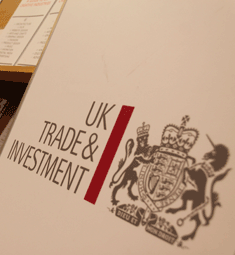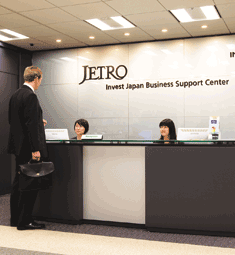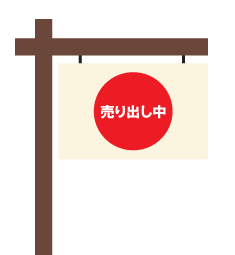For better lifestyles and lower costs, firms locate outside Tokyo
It may have the bright lights, skyscrapers and 24-hour energy that accompanies a capital city, but Tokyo doesn’t have it all. It doesn’t have many green spaces and, critics would also argue, it has more than enough pollution and crowding on public transport, while the urban heat island phenomenon in the summer means you could fry an egg on the pavement.
And those are just some of the reasons that non-Japanese firms—particularly smaller ones—are increasingly considering not basing their Japanese operations in Tokyo but, instead, in one of the more-than-welcoming communities a little further afield.
Their staff might not see the Tokyo Sky Tree on their daily commute, but the proximity of mountains or the sea means a better quality of life and happy employees—usually translating into a more productive and profitable firm.
The Japan External Trade Organization (JETRO) is the government agency tasked with encouraging foreign firms to establish offices and manufacturing facilities in Japan.
They also work closely with local authorities to promote to these firms the attractiveness of potential sites, from Hokkaido in the north to Okinawa in the south.
An entire wall of JETRO’s lobby is covered with colourful pamphlets declaring “Fascinating Kanagawa: Best place for your business”, or “Saitama City: Business hub in the new era”, or the more prosaic “Industry of Ehime”. Clearly, prefectures are not shy about seeking foreign business.
JETRO operates what it calls the “Three Windows on Japan” strategy, emphasising the three areas in which Japan has advantages over its international rivals. Thus, it claims that “Japan has great potential to become a regional hub and a research and development centre in Asia, as exchanges of personnel, goods and money accelerate within Asia”.
Second, it believes Japan plays a critical role as a “bridge nation connecting Asia and the world”, thereby contributing to the growth of the region.
Third, JETRO is quick to explain that Japan, as the world’s third-largest economy, is a vast market with huge potential for growth, adding that “Japanese consumers are sensitive to fashion and make new fashion a part of their lives quickly. Therefore, Japan offers [firms the opportunity] for test marketing before entering Asian markets”.
At the prefectural level, Kanagawa has one of the most proactive and successful departments charged with attracting foreign firms, and clearly benefits from its proximity to Tokyo.
Akira Imai, a spokesman for the prefecture’s Division of Industrial Location, said: “We are doing a lot of activities to attract foreign firms to Kanagawa, often in cooperation with the city of Yokohama and the local branch of JETRO”.
In 2010—according to Toyo Keizai, Inc., which annually produces a comprehensive list of foreign firms operating in Japan—Kanagawa Prefecture played host to the offices of 418 foreign firms, including 275 that sited their Japan headquarters there, and a number of global outfits, such as US computer giant Dell, as well as India’s Wipro IT Business and Tata Consultancy Services Limited.
British firms based in Kanagawa include Colortrac, the Cambridge-based scanner manufacturer, and technology-testing firm Polar Instruments, originally from Waterlooville in Hampshire.
The main advantages of locating in the prefecture, according to Imai, include an excellent transport system that combines shipping and port facilities, access to Haneda International Airport, local train services and long-distance bullet trains. Office rents in Kanagawa are typically only 70% of those in Tokyo and, as of this writing, are the equivalent of £25.14 per m2 on average. This makes renting office space in Kanagawa cheaper than in Beijing, Seoul, Mumbai or even Hanoi.
Kanagawa has a large pool of educated and trained potential employees, Imai pointed out, while newcomers can benefit from the cluster of firms in a number of key sectors, such as the automotive, biotechnology, electronics, energy and environment-related industries.
The final asset in Kanagawa’s favour, according to Imai, is the all-round comfortable living environment of the prefecture. This is crucial when expatriate staff have to consider international schools and other needs of families from abroad.
However, Imai admitted that, since the events of 11 March last year, many foreign firms have been cautious about their operations in Japan—something that has been brought up by trade investment officials from Fukushima Prefecture, Hokkaido and other parts of northern Japan.
But bad news for eastern Japan is good news for other parts of the country.
Through its Osaka Investment Support Program, the largest city in Kansai helps firms prepare to do business there. Rent-free, temporary offices are provided during the initial stages, in addition to a wide range of financial incentives, including help with rent, assistance in buying city-owned land, and funds for establishing manufacturing facilities.
Osaka, which is courting technology firms, is recognised as a centre of the new-energy business that produces items such as lithium-ion batteries and solar panels.
To satisfy the demand for space, the city is reclaiming part of Osaka Bay, and the man-made Yumeshima Island has been set aside specifically for industrial use.
Some of the firms taking advantage of Osaka’s offerings include Britain’s Hays plc, a specialist recruitment firm established in 2007, as well as France’s Société Générale Private Banking Japan and VDE Global Services GmbH of Germany.
JETRO accepts that entering the Japanese market presents foreign firms with some obstacles. A recent study suggests high costs are the major barrier, followed by high demand for quality, problems finding bilingual employees, regulations and a conservative market.
These impediments can be overcome, however, by differentiating a product, making a clear commitment to the market, hiring experienced local staff, as well as building trust and understanding with Japanese partners.
Despite the fears of foreign firms, the Investment Promotion Division of the Chiba prefectural government has a solid history of attracting newcomers.
“Chiba is an affordable location, compared with Tokyo; it is easy to access from overseas, thanks to Narita International Airport and the Port of Chiba [the largest seaport in Japan]; and it has a comfortable living environment”, Hiroshi Nakamura told BCCJ ACUMEN.
In the first half of 2012, Chiba Prefecture saw five foreign firms launch their operations, including the headquarters set up by Australian budget airline Jetstar Japan Co., Ltd.
Although last year’s figures were seriously affected by the Great East Japan Earthquake, 10 firms started up in the prefecture, including the parts operations of Mercedes-Benz Japan. The best performance in recent years, according to Nakamura, was the arrival of 24 firms in 2009.
“In addition to subsidies, we provide a wide range of services, such as information on offices, land and factory facilities, as well as introductions to professionals who can provide advice on legal, tax and other issues”, he said. “We can also help with support related to working visas, other immigration-related issues and information on living in Chiba”.
UK Trade & Investment (UKTI), the business arm of British embassies worldwide, provides UK-based firms expanding abroad with expert advice and practical support that includes help participating in trade fairs and outward missions, advice on regulations, and bespoke market intelligence. A downloadable UKTI guide targets firms experienced in overseas trade that are new to doing business with Japan, and offers basic knowledge about the country including an overview of its economy, business culture, potential opportunities—and successful case studies.
Business plans
Another highly recommended first stop for a foreign firm entering Japan or for those looking to expand here is the Japan Market Expansion Competition (JMEC). For a fraction of the price that a consultancy charges, since 1993 JMEC has provided professional, custom-made business plans to more than 100 project clients—including multinational corporations, entrepreneurs, start-ups and SMEs—to help them enter the market or to launch new products or services in Japan.
Supported by 16 foreign chambers of commerce, as well as established entrepreneurs and corporations all in Japan, JMEC’s annual business plan service is based on a competition that lasts seven months. JMEC recruits high-potential entrepreneurs and executives through a tough screening process of interviews and presentations. The participants are put into teams and over the next few months are lectured, mentored and critiqued by experienced Japan-based businesspeople before their business plan is judged by a panel of JMEC experts. The confidential business plans can then be used by the project clients to carry out their market entry or expansion.







